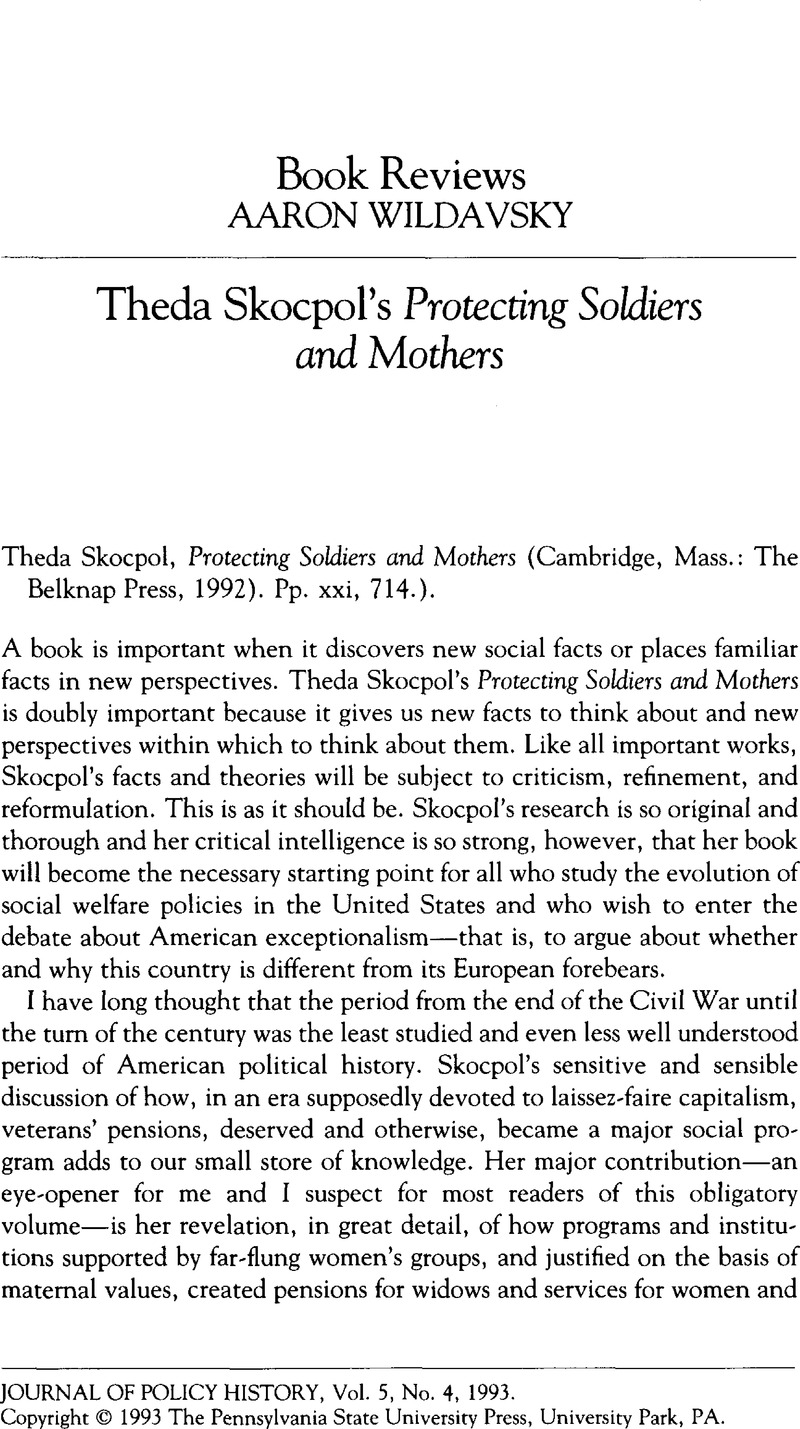No CrossRef data available.
Published online by Cambridge University Press: 14 October 2011

1. On Truman, see White, Joseph and Wildavsky, Aaron, “Public Authority and the Public Interest: What the 1980s Budget Battles Tell Us about the American State,” Journal of Theoretical Politics 1, no. 1 (January 1989): 7–31.CrossRefGoogle Scholar
2. See Wildavsky, Aaron, “Policy as Its Cause,” chap. 7, 62–85, in Speaking Truth to Power (Boston, 1979).Google Scholar
3. See, for instance, Friedman, Lawrence J., Gregarious Saints: Self and Community in American Abolitionism, 1830–1870 (Cambridge, 1982)Google Scholar; Ellis, Richard and Wildavsky, Aaron, “A Cultural Analysis of the Role of Abolitionists in the Coming of the Civil War,” Comparative Studies in Society and History 32, no. 1 (January 1990): 89–116CrossRefGoogle Scholar; and Douglas, Mary, “Cultural Bias,” in In the Active Voice, Douglas, Mary, ed. (London, 1982).Google Scholar
4. Skocpol claims that the Shepherd Towner maternal and infant health programs and clinics established in 1921 could have been saved if leaders of women's groups had chosen to fight. She also feels that had their funds come as entitlements rather than as appropriations, they would not have had to fight for them so hard or so often. My own study of a wide range of entitlements suggests otherwise. Well-regarded nonentitlements, such as the Women, Infants, and Children's (WIC) program, often do better than entitlements such as Aid to Dependent Children. See Wildavsky, Aaron, The New Politics of the Budgetary Process (New York, 1988), 2d ed., chaps. 7 and 8.Google Scholar
5. See Kaus, Mickey, The End of Equality (New York, 1992).Google Scholar
6. Wolfe, Alan, “The Mothers of Invention,” The New Republic, 4 and 11 January 1993, 28–35, at 32.Google Scholar